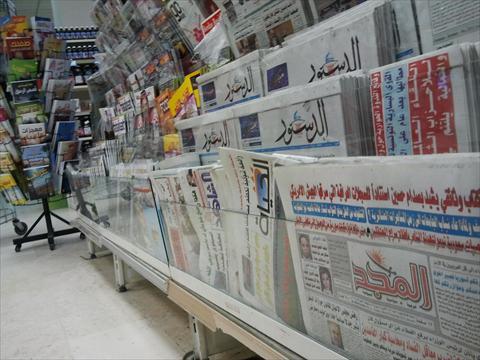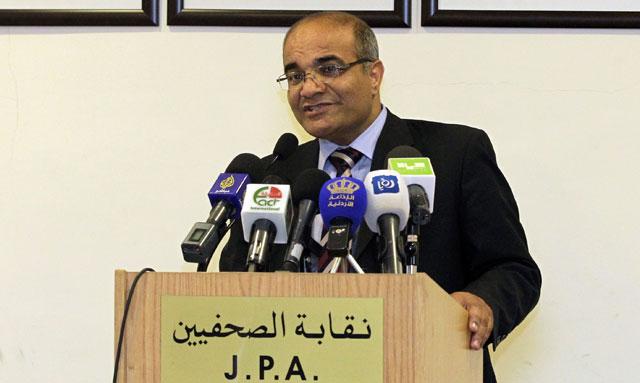You are here
Level of media freedom declines in 2013 — press syndicate
By Mohammad Ghazal - Apr 22,2014 - Last updated at Apr 22,2014

AMMAN — Media freedom in Jordan witnessed a further decline in 2013 compared to 2012, according to a report issued by the Jordan Press Association (JPA).
Blocking hundreds of news websites, limited access to information for journalists and trying media workers before military-run courts were the key factors that adversely affected the level of press freedom last year, JPA President Tareq Momani told The Jordan Times Tuesday, citing the report’s findings.
On a scale of 100, press freedom in Jordan ranked 44.15 in 2013 compared with 51 in 2012, said Momani.
“The reason behind the decline in press freedom is the fact that the Press and Publications Law entered into force. Subsequently, the government blocked several unlicensed websites,” he noted.
In mid-2013, the government sent a list of more than 281 unlicensed news sites to the Telecommunications Regulatory Commission, which, in turn, requested Internet Service Providers to block them.
“The law has many restrictions that limit the freedom of press,” said Momani.
Highlighting major challenges to press freedom in 2013, the report cited restricted access to information as a top problem journalists faced in the said year.
Not inviting journalists to official events came third in terms of obstacles and was followed by interference in their work, according to the JPA report, which said that censorship and not publishing journalists’ reports were among the key obstacles.
“In 2013, some journalists were imprisoned and detained by the State Security Court (SSC), which violated the Constitution and significantly affected the media freedom level last year,” said Momani.
Nidal Mansour, president of the Centre for Defending Freedom of Journalists, said media freedom declined in 2013 because the media sector is governed by legislation that restricts press freedom.
“Detaining journalists and assaulting them declined in 2013. In 2011 and 2012, there were more demonstrations on the streets and many journalists then were arrested or assaulted, but the level of demonstrations in 2013 declined,” said Mansour.
“However, there was an increase in self-censorship and the trend to limit access to information also rose in 2013. There is also a problem in the ambiguous laws regulating the media sector,” he added.
The media experts called for a thorough revision of laws governing the media sector to ensure more freedom.
Related Articles
The Jordan Press Association (JPA) starts on Wednesday polling journalists on press freedoms in Jordan before issuing its report on the standards of press freedom in the Kingdom for the second year.
Freedom of the press in Jordan dropped by 12 percentage points to 41 per cent in 2013 compared to 2012, according to the Media Freedom Status in Jordan 2013 Report released on Saturday, which marks World Press Freedom Day.
Media freedom in Jordan improved slightly in 2014 compared to 2013, remaining at the relatively free level, according to a report issued by the Jordan Press Association (JPA) on Wednesday.













